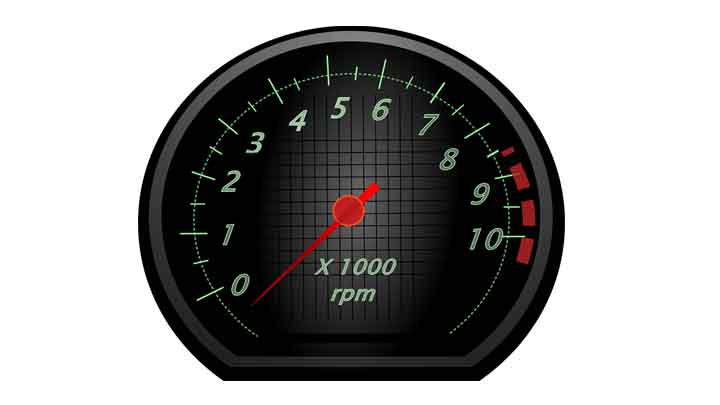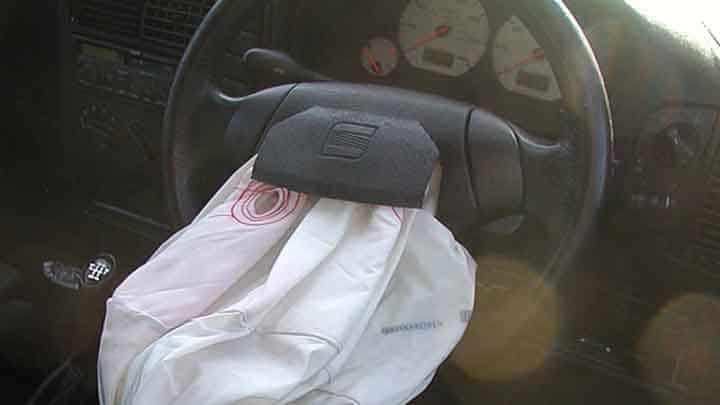
It is easy to take car acceleration for granted. When you step on the gas pedal, you naturally assume that you’re going to go faster without any problems. Unfortunately, there are rare situations where your car will lose power as you attempt to accelerate it. There are lots of different possible causes for this type of problem. Basically, the causes can be broken down into three main categories: mechanical issues, bad sensors, and or bad actuators. Any of these can spell trouble for not just your driving ability, but for the health of your engine.
10 Common Causes
It is important that you learn about all the possible causes of a car losing power when accelerating. That way, it will be easier to fix the problem before it gets worse. Then you’ll be able to save your engine without needing to pay for repair or replacement.
Below are the top 10 causes of a car losing power when accelerating.
1) Clogged Fuel Filter
The fuel filter is responsible for preventing contaminants in the fuel from getting into the internal combustion chamber of the engine. These contaminants build in the fuel from sitting in the fuel tank for so long. After a while, the fuel filter gets clogged from blocking all the contaminants. Once that happens, it will prevent fuel from entering the combustion chamber. This results in a weak engine when idle or accelerating.
2) Low Compression
Engine cylinders which have low compression will cause the engine power to be reduced. This could be due to the timing belt , valve seals, piston rings, engine overheat or any number of other reasons.
3) Bad Camshaft Position Sensor
The engine control module depends on information from the camshaft position sensor to properly manage the ignition and fuel injection systems. If the sensor is bad, then the fuel injection timing will be thrown off. That means the engine won’t generate power to sufficiently.
4) Bad Mass Airflow Sensor
The MAF sensor measures airflow to the engine. The engine control module uses this information to ensure quality combustion. If the sensor is faulty, then the combustion won’t be good. Then the engine power will be bad.
5) Bad Oxygen Sensor
The oxygen sensor measures the exhaust gases leaving your engine. This is important for the engine control module to calculate the air-to-fuel ratio. If the oxygen sensor is faulty, then it messes up the ratio and causes power problems from the engine.
Read also:
- 7 Causes of Your Car Engine Over Heat
- 7 Causes of Car Engine Only Cranks, But Won’t Start
- Advantages and Disadvantages of Personal Car Leasing
6) Clogged Air Filter
The air filter prevents all sorts of airborne elements from entering your engine, such as bugs, pollution, debris, and so on. But if the air filter is clogged from these elements, it will prevent air from entering the engine for combustion. This will reduce the engine’s power until the filter is replaced.
7) Malfunctioning Fuel Injectors
The fuel injectors have an important job of spraying fuel into the engine at just the right time. If the fuel injectors become worn out or malfunction, then they’ll fail at their job. Engines that don’t receive fuel in a timely manner will not generate enough power to operate the vehicle properly.
8) Clogged Exhaust System
A clogged exhaust system is when you have a blockage in the exhaust pipe or its filters. If that happens, your engine won’t be too powerful until those exhaust gases can be converted by the catalyst converter.
9) Bad Spark Plugs
Spark plugs are responsible for sending an electric spark to the internal combustion chamber which ignites the air and fuel mixture there. If this electric spark is weak because of bad spark plugs, then the ignition of the mixture will be weak. This, in return, causes a weak engine performance.
10) Faulty Fuel Pump
The fuel pump is what transfers fuel from the fuel tank to the internal combustion chamber. So, a bad fuel pump will fail at transferring enough fuel to the engine when it is needed. Then a lack of power will exist as a result.


